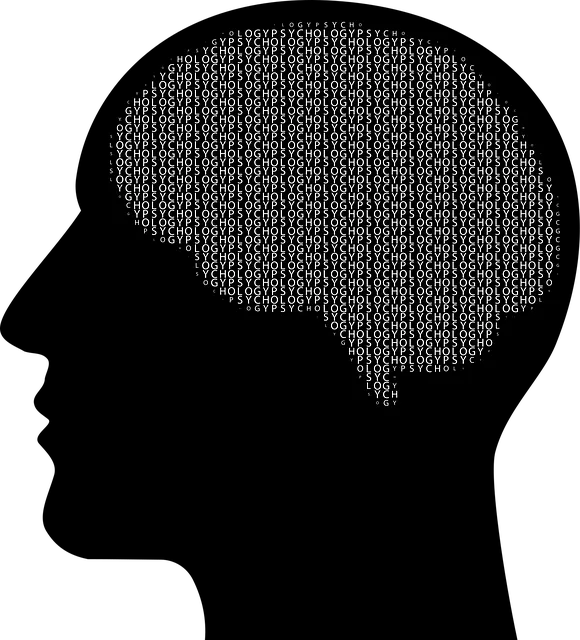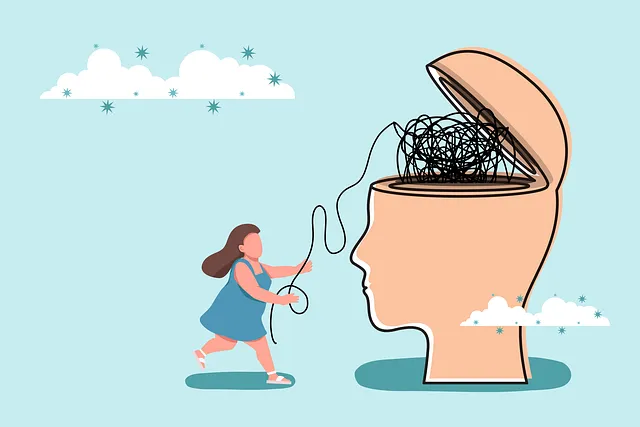The Boulder Kaiser mental health programs offer advanced emotional intelligence training, combining therapy, mindfulness practices, and workshops to empower individuals with effective emotion regulation tools. Through techniques like cognitive reframing, deep breathing exercises, and mindfulness meditation, participants gain self-awareness and learn to manage their emotional responses. These programs holistically support self-care, burnout prevention, and stress reduction, fostering resilience and improving overall mood management for better mental health and quality of life.
Emotion regulation techniques are essential tools for navigating life’s challenges. In this comprehensive guide, we explore effective strategies inspired by the Boulder Kaiser Mental Health Programs approach. Understanding emotion regulation begins with unlocking emotional intelligence, followed by practical methods like mindfulness and cognitive reframing. Learn how these techniques build resilience, enhance adaptability, and foster overall well-being. Discover actionable strategies applicable to daily life, backed by the success of the Boulder Kaiser mental health programs.
- Understanding Emotion Regulation: Unlocking Emotional Intelligence
- The Boulder Kaiser Mental Health Programs Approach
- Teaching Mindfulness: A Powerful Tool for Self-Awareness
- Cognitive Reframing: Challenging Negative Thought Patterns
- Practical Strategies for Daily Life: Building Resilience and Adaptability
Understanding Emotion Regulation: Unlocking Emotional Intelligence

Emotion regulation is a vital aspect of mental wellness, and mastering it can significantly enhance one’s quality of life. It involves recognizing, understanding, and managing emotions effectively to promote healthy decision-making and overall well-being. The Boulder Kaiser mental health programs emphasize the importance of emotional intelligence, equipping individuals with powerful tools to navigate their feelings.
Through various Self-Care Practices and Burnout Prevention strategies, these programs help people unlock the potential to regulate their emotions constructively. By delving into different techniques, from mindfulness meditation to cognitive behavioral therapies, individuals gain a deeper understanding of their emotional responses. This knowledge allows them to make conscious choices, fostering better mental health and resilience in challenging situations.
The Boulder Kaiser Mental Health Programs Approach

The Boulder Kaiser Mental Health Programs take a holistic approach to emotion regulation, focusing on various techniques to empower individuals in managing their mental well-being. Their programs are designed to provide practical tools for coping with life’s challenges, fostering resilience, and improving overall mood management. Through a combination of therapy sessions, mindfulness practices, and educational workshops, participants learn effective strategies to navigate intense emotions.
This unique method emphasizes self-awareness and self-acceptance as foundational components of emotional health. By teaching individuals to recognize and understand their feelings, the programs aim to boost self-esteem improvement and promote positive thinking. The Boulder Kaiser approach encourages a proactive mindset, where learners can take charge of their mental state and develop lasting strategies for emotional balance, thereby enhancing their overall quality of life.
Teaching Mindfulness: A Powerful Tool for Self-Awareness

Teaching mindfulness is a cornerstone of many Boulder Kaiser mental health programs, equipping individuals with a powerful tool for self-awareness and emotional regulation. This ancient practice involves training one’s attention to focus on the present moment, cultivating a non-judgmental awareness of thoughts, feelings, and bodily sensations. By integrating mindfulness into their daily lives, individuals can learn to recognize early cues of distress, thereby enabling them to employ effective coping strategies before emotions escalate.
The benefits of mindfulness extend beyond stress reduction, as it fosters better emotional intelligence, enhances focus and concentration, and promotes overall well-being. Boulder Kaiser’s mental health professionals often incorporate compassion cultivation practices and healthcare provider cultural competency training into their curriculum, recognizing the importance of self-care for optimal patient care. These holistic approaches not only benefit the mind but also contribute to a more balanced and fulfilling life, ultimately supporting individuals in managing their emotional landscape effectively.
Cognitive Reframing: Challenging Negative Thought Patterns

Cognitive Reframing is a powerful tool within the broader scope of emotional regulation techniques taught at Boulder Kaiser mental health programs. It involves identifying and challenging negative thought patterns, replacing them with more balanced and realistic perspectives. This process empowers individuals to view their emotions from a different lens, enabling them to better manage reactions that may otherwise be overwhelming.
By practicing cognitive reframing, folks can learn to navigate through stressful situations or traumatic experiences, offered support by services like Trauma Support Services. Incorporating Mindfulness Meditation techniques further enhances this process, allowing for heightened self-awareness and emotional regulation. Ultimately, these strategies foster resilience, enabling individuals to dance with their emotions rather than being swept away by them.
Practical Strategies for Daily Life: Building Resilience and Adaptability

Incorporating practical emotion regulation techniques into daily life is a key aspect of fostering resilience and adaptability, as offered by the Boulder Kaiser mental health programs. These strategies empower individuals to navigate emotional challenges with greater ease and composure. Simple yet effective methods such as mindfulness practices, deep breathing exercises, and cognitive reframing can help individuals recognize and understand their emotions before responding to them. By integrating these techniques into daily routines, people build a buffer against stress and emotional turmoil, enabling them to adapt more readily to life’s inevitable ups and downs.
The Community Outreach Program Implementation of Boulder Kaiser plays a significant role in disseminating Empathy Building Strategies within the community. Through workshops, group sessions, and personalized counseling, individuals learn to recognize the emotions of others, fostering deeper connections and understanding. This enhanced emotional intelligence not only improves interpersonal relationships but also strengthens an individual’s ability to manage their own emotional responses, contributing to overall well-being.
Emotion regulation techniques, as exemplified by the comprehensive programs offered by the Boulder Kaiser Mental Health Programs, play a pivotal role in enhancing emotional intelligence. By understanding and managing our emotions effectively, we can navigate life’s challenges with greater resilience and adaptability. Techniques such as mindfulness practice, cognitive reframing, and practical strategies for daily life empower individuals to unlock their emotional potential, fostering a symphony of mental well-being that reverberates beyond the confines of therapy sessions.






